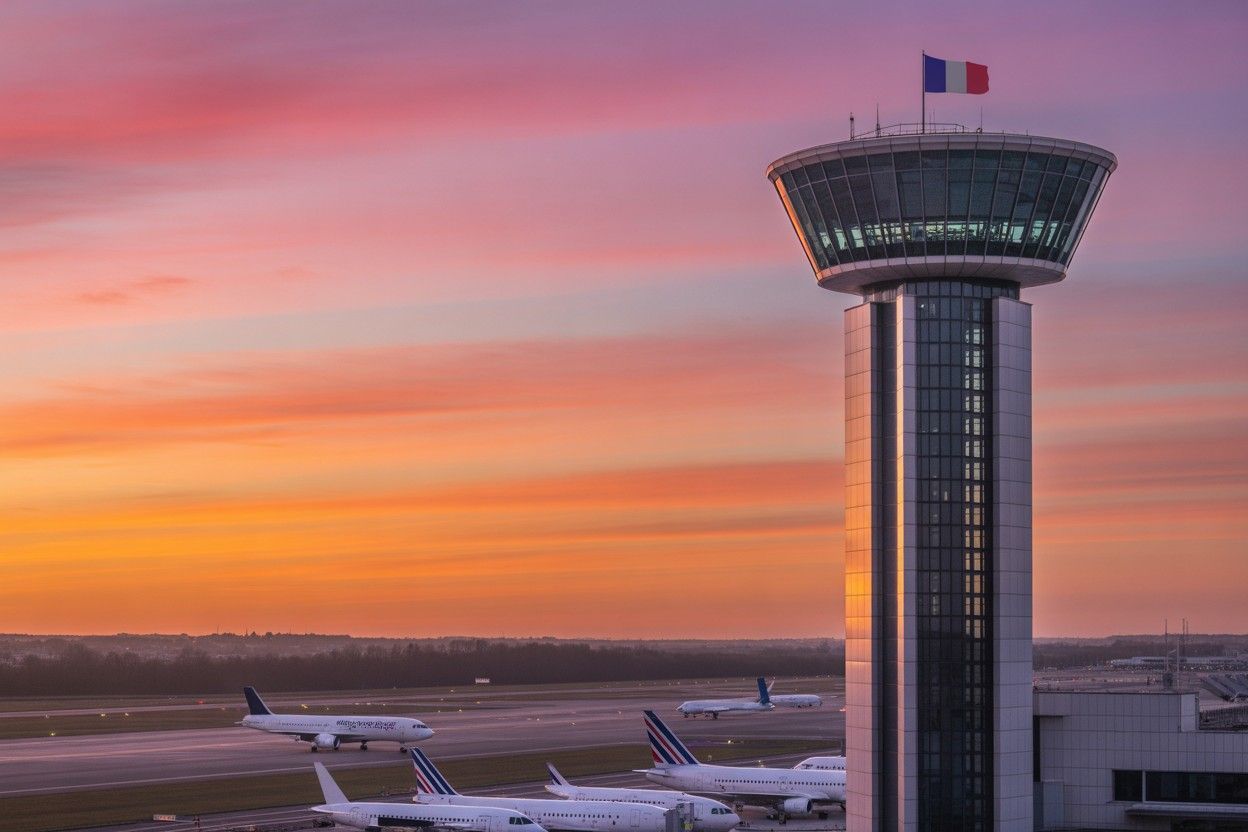Published on
October 5, 2025
France is set to endure sweeping disruption in its aviation sector as air traffic controllers, represented by the SNCTA union, have announced a seventy-two-hour strike scheduled to run from October 7 to 10, 2025. The industrial action is expected to affect not only flights arriving and departing French airports but also thousands of services that cross French airspace, one of the busiest air corridors in Europe.
This move is part of broader social unrest across France, spurred by public discontent over government austerity policies affecting social spending, as well as grievances among controllers about their working conditions and demands for pay adjustments to match inflation. The timing means that both domestic and transiting international passengers will experience significant delays, cancellations, and rerouting, with ripple effects expected across Europe’s aviation network.
Stepwise Cancelations and Airline Responses
The French civil aviation authority (DGAC) has outlined a process to manage flight disruptions: air traffic controllers must declare their availability two days in advance for each strike day. Based on staffing levels, the DGAC determines what air traffic services can be safely operated and instructs airlines, by the afternoon before, to cancel a defined proportion of flights. This tiered system means that passenger certainty will be lacking right up until the day before each affected date, complicating trip planning for tourists and business travelers.
With previous controller strikes this July causing roughly three thousand flight cancellations and affecting over one million passengers, the forthcoming action could be even more disruptive. Civilians are advised to monitor their flight status frequently and remain in steady contact with their airlines, as unpredictability is likely.
Tourism Impact Across Europe
France’s aviation network is critical for leisure and business travel throughout the continent. The strike’s timing, during a popular autumn travel window, ensures repercussions for tourism, international conferences, and school holidays, as well as for those flying to major destinations like Paris, Normandy, Lyon, Nice, and beyond. Even flights between the UK and Spain, or Germany and Italy, may face disruption due to France’s pivotal airspace.
For inbound tourists, the turbulence may lead to last-minute cancellations, re-routed journeys, and extended stays in alternative hubs, impacting business for hotels, restaurants, and attractions in France. The wider European travel industry also faces logistical headaches with backlogs, missed connections, and reputational risks for reliability.
Air Canada’s Response: Flexible Rebooking for Passengers
Air Canada, which operates flights to Paris (CDG), Lyon (LYS), Nice (NCE), and Toulouse (TLS), has responded pro-actively by introducing a flexible rebooking policy for affected customers. Tickets purchased prior to October 2 for travel between October 6 and October 9 may be changed once, free of charge, for new dates up to October 17, 2025. Changes must be made at least two hours before departure and are allowed only on Air Canada-operated or codeshare flights.
Passengers can also alter their origin or destination to another Air Canada market within the guidelines, with fare differences applying as necessary. The airline recommends that travelers retrieve their bookings online and process changes directly for convenience. Refund rules will follow standard fare regulations, and Aeroplan points travelers are urged to call support for assistance.
Broader Airline Obligations and Travel Advice
All airlines operating in French airspace are obligated to re-route passengers and provide necessary accommodation and meals in the event of flight cancellations, regardless of the strike’s cause. With hundreds of thousands of travelers potentially affected, travelers are urged to monitor official airline channels, prepare for flexible travel plans, and ensure any travel insurance covers strike-related disruptions.
Travel agents, tour operators, and businesses with employees traveling through France should proactively communicate possible delays and alternative arrangements.
Union Demands and Future Outlook
The SNCTA union cites strict management methods, alleged punitive practices, and the need for wage adjustments as core strike drivers. Despite the union’s ongoing negotiations with the government and aviation authorities, no immediate resolution has been reached. Calls for the EU to protect flights simply overflying France, limiting the scope of future strikes, remain unaddressed, leaving Europe’s airlines and travelers vulnerable to similar turbulence in the future.
Travelers Urged to Stay Informed and Flexible
With France playing host to one of Europe’s busiest airspaces, the looming strike serves as a powerful reminder of the travel sector’s sensitivity to labor unrest. The disruption will likely echo across the continent, impacting tourism, business, and personal travel. Air Canada’s customer-friendly rebooking policy provides some reassurance, but vigilance, patience, and advance planning are strongly advised for anyone planning to fly over France in the coming week.
